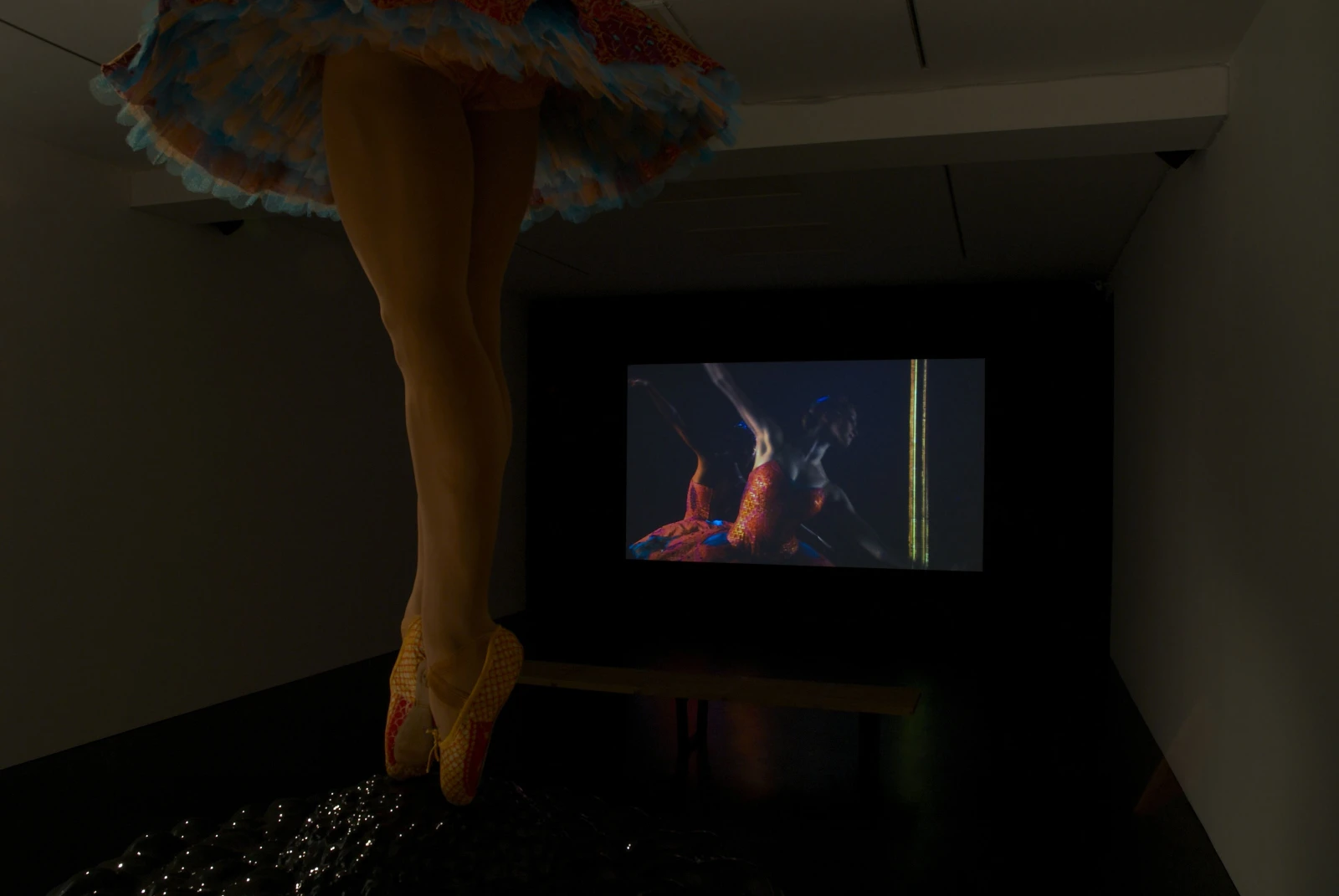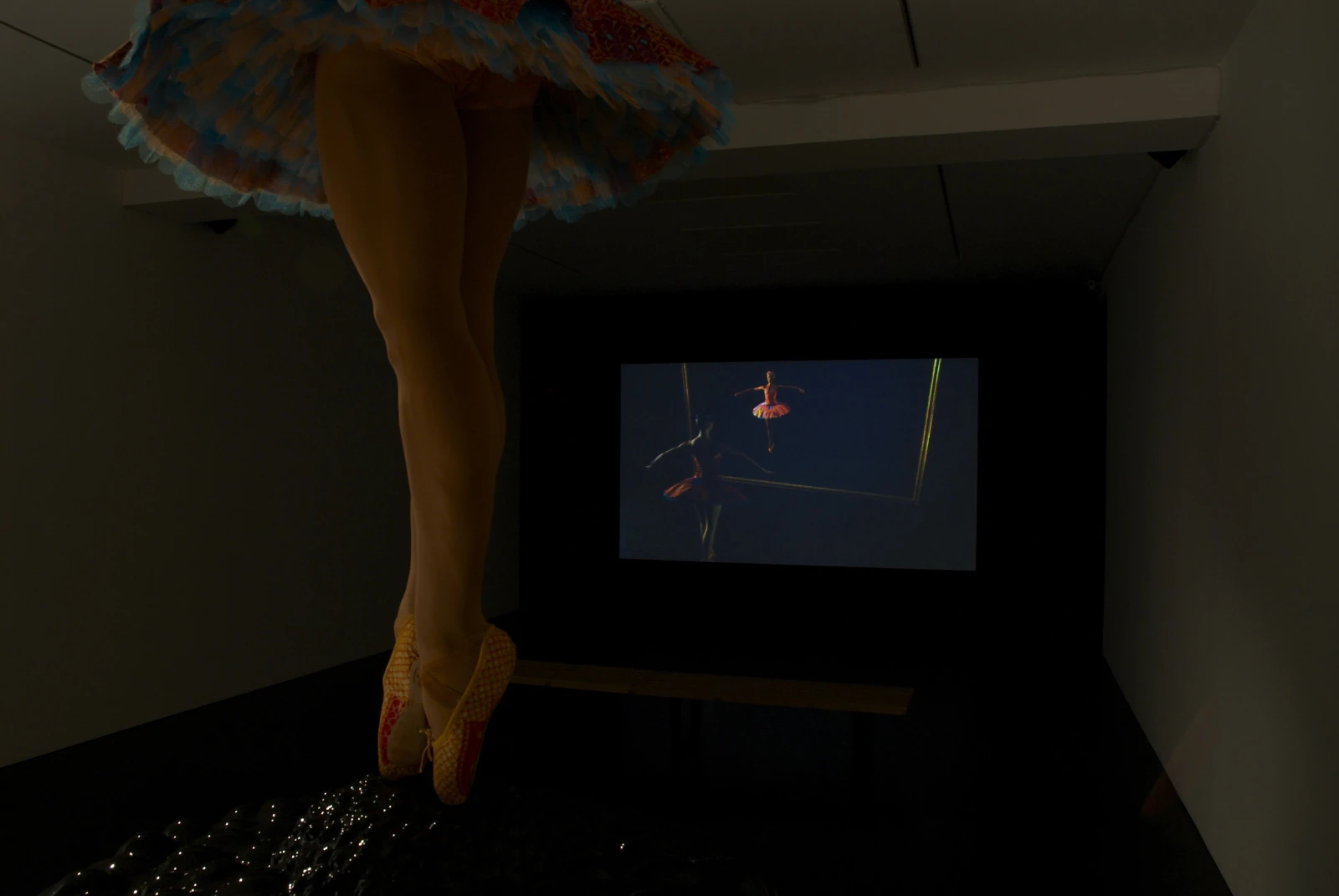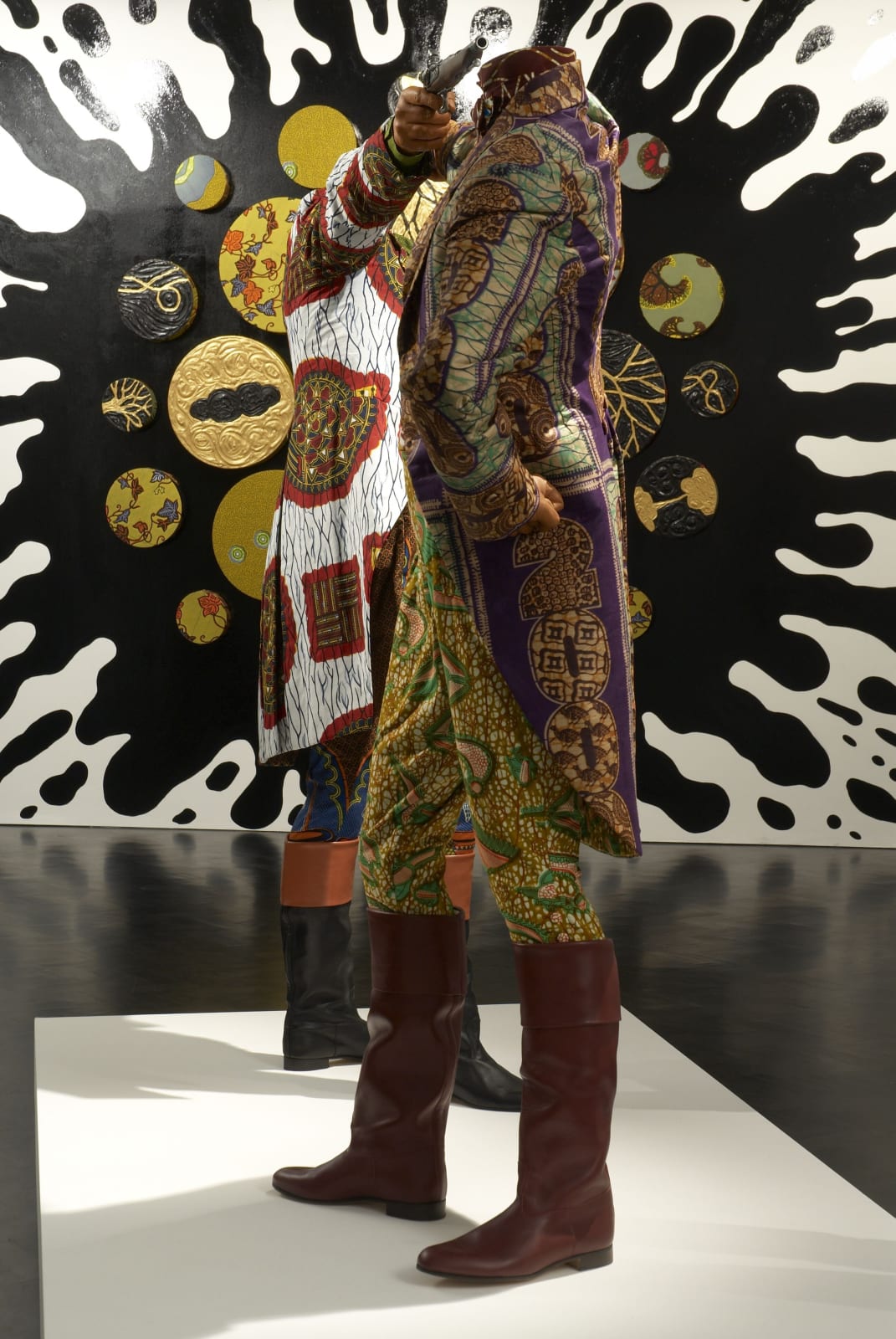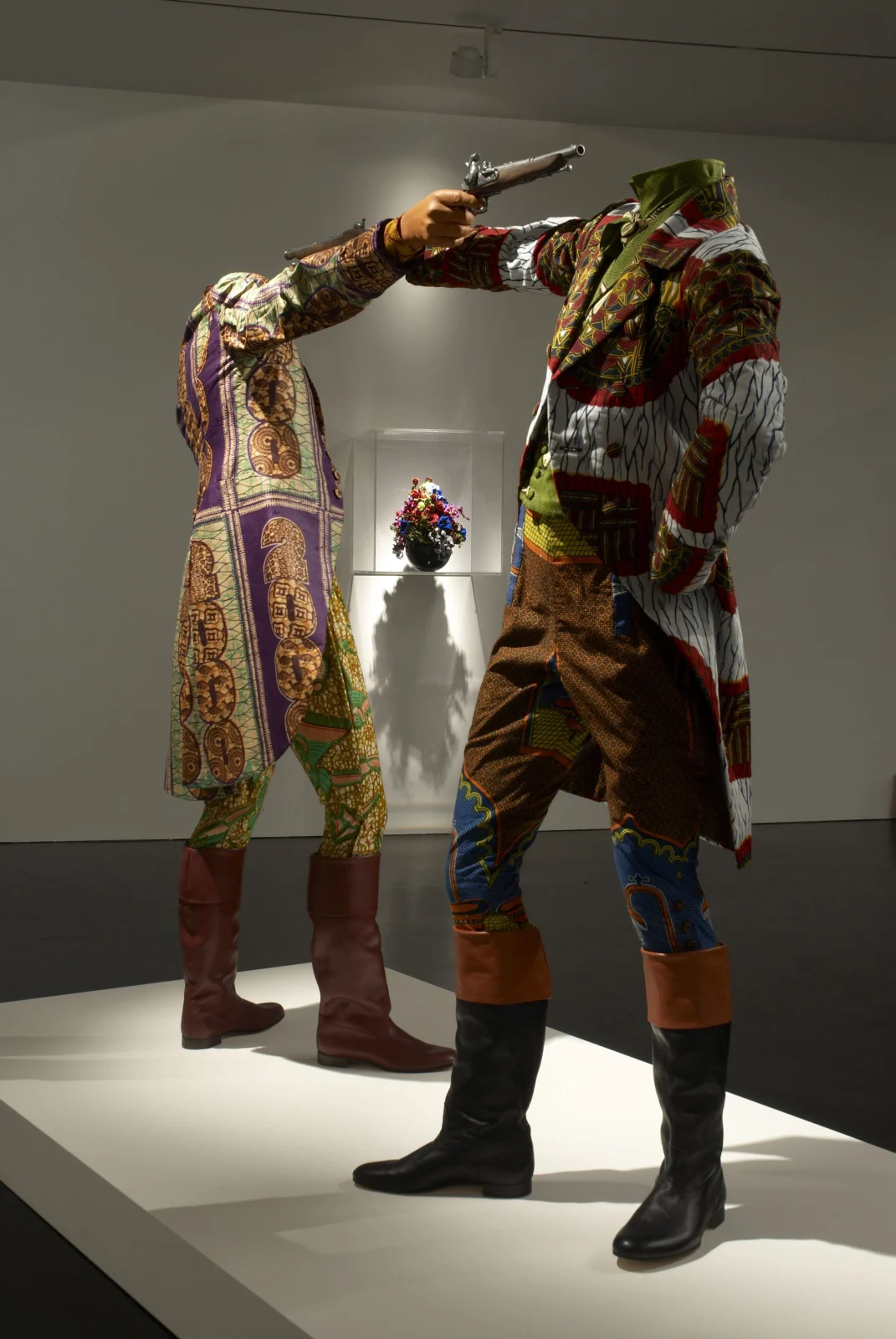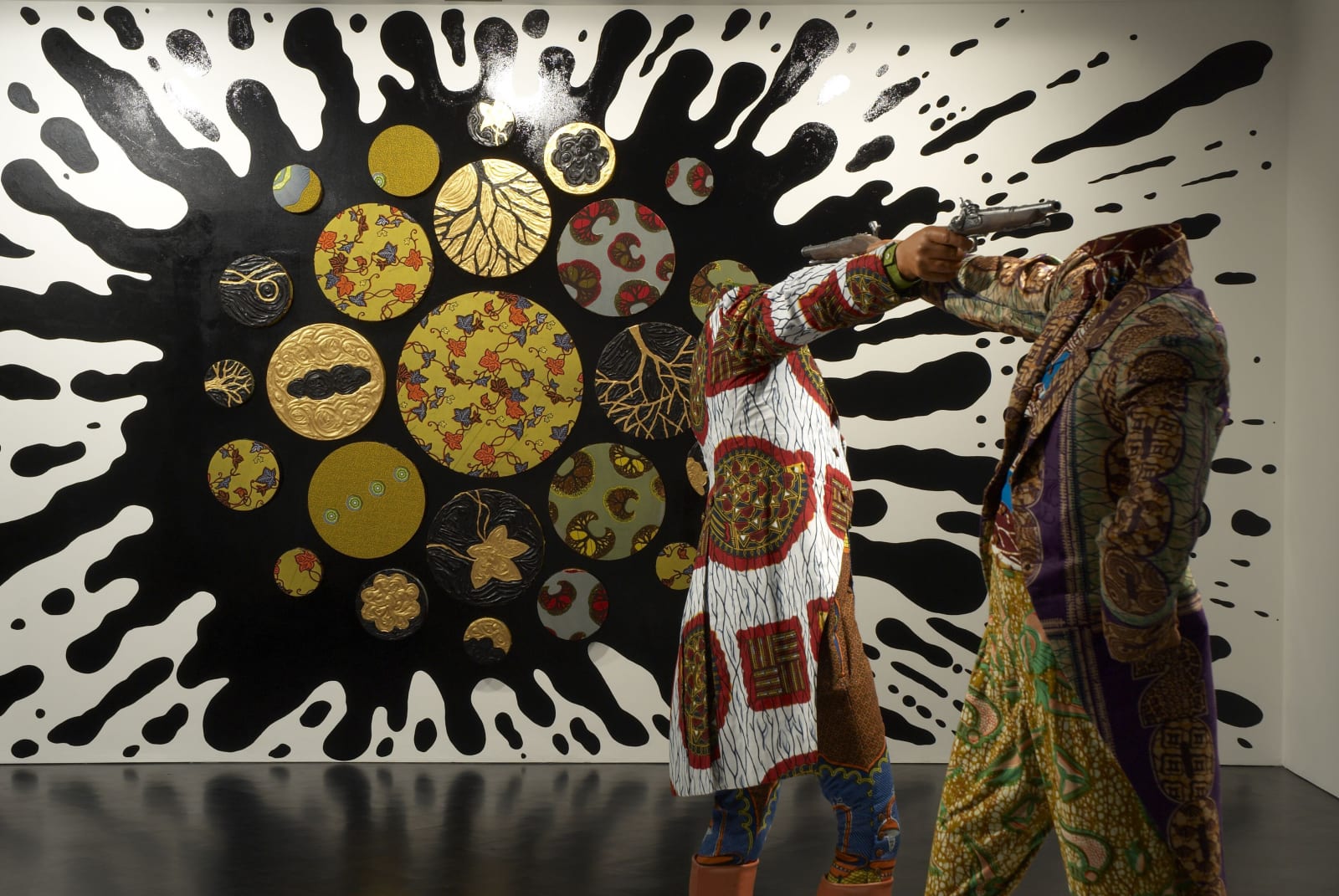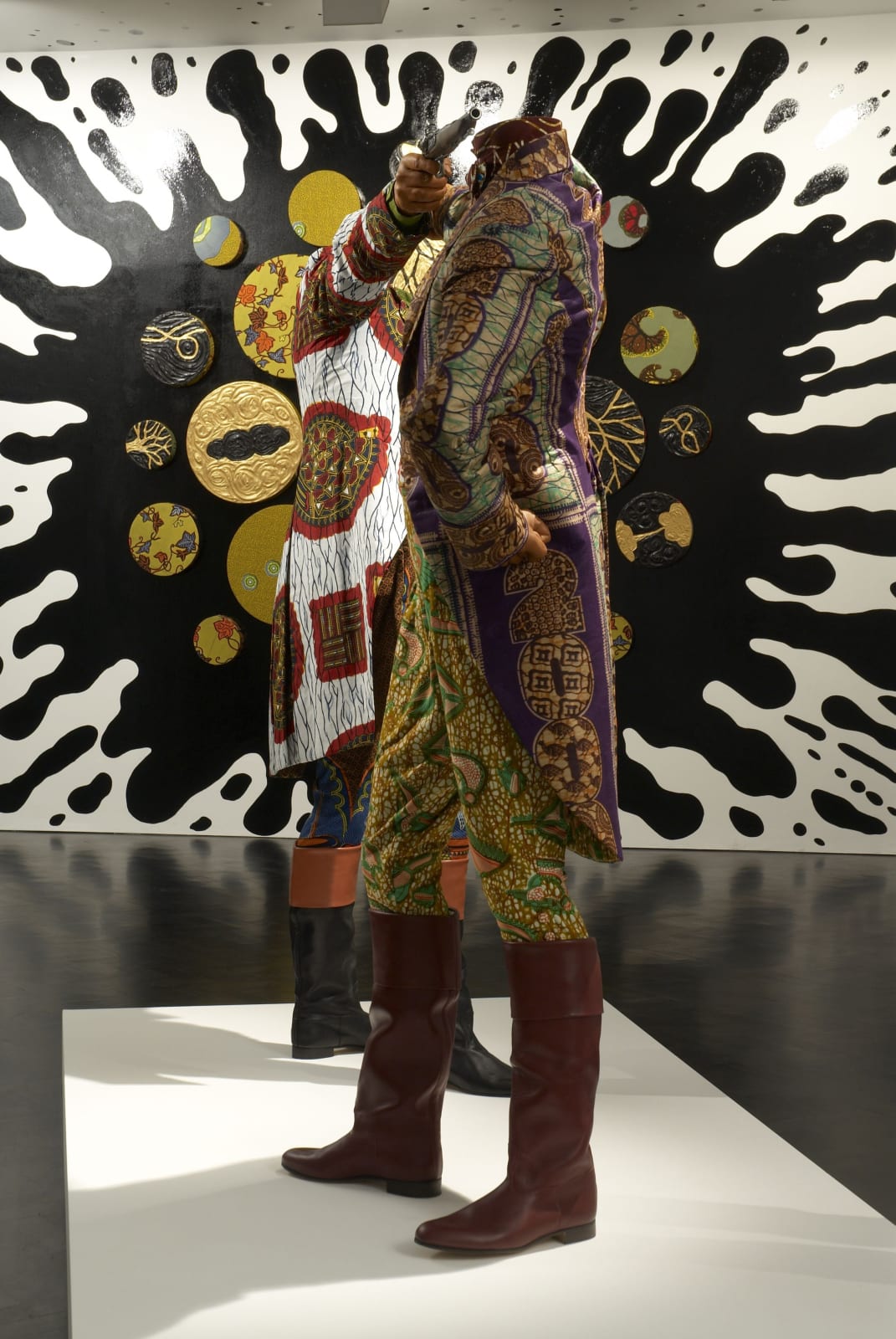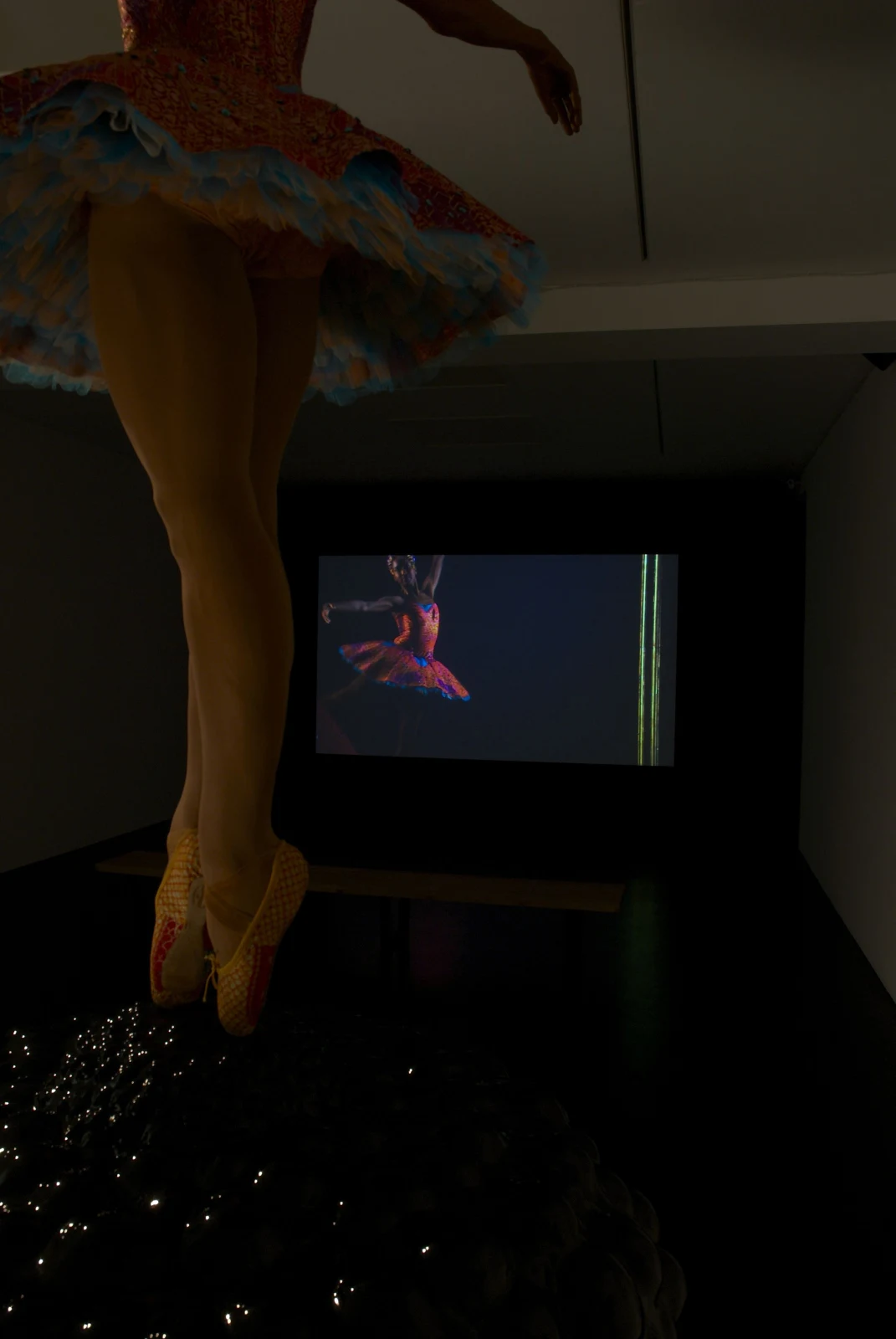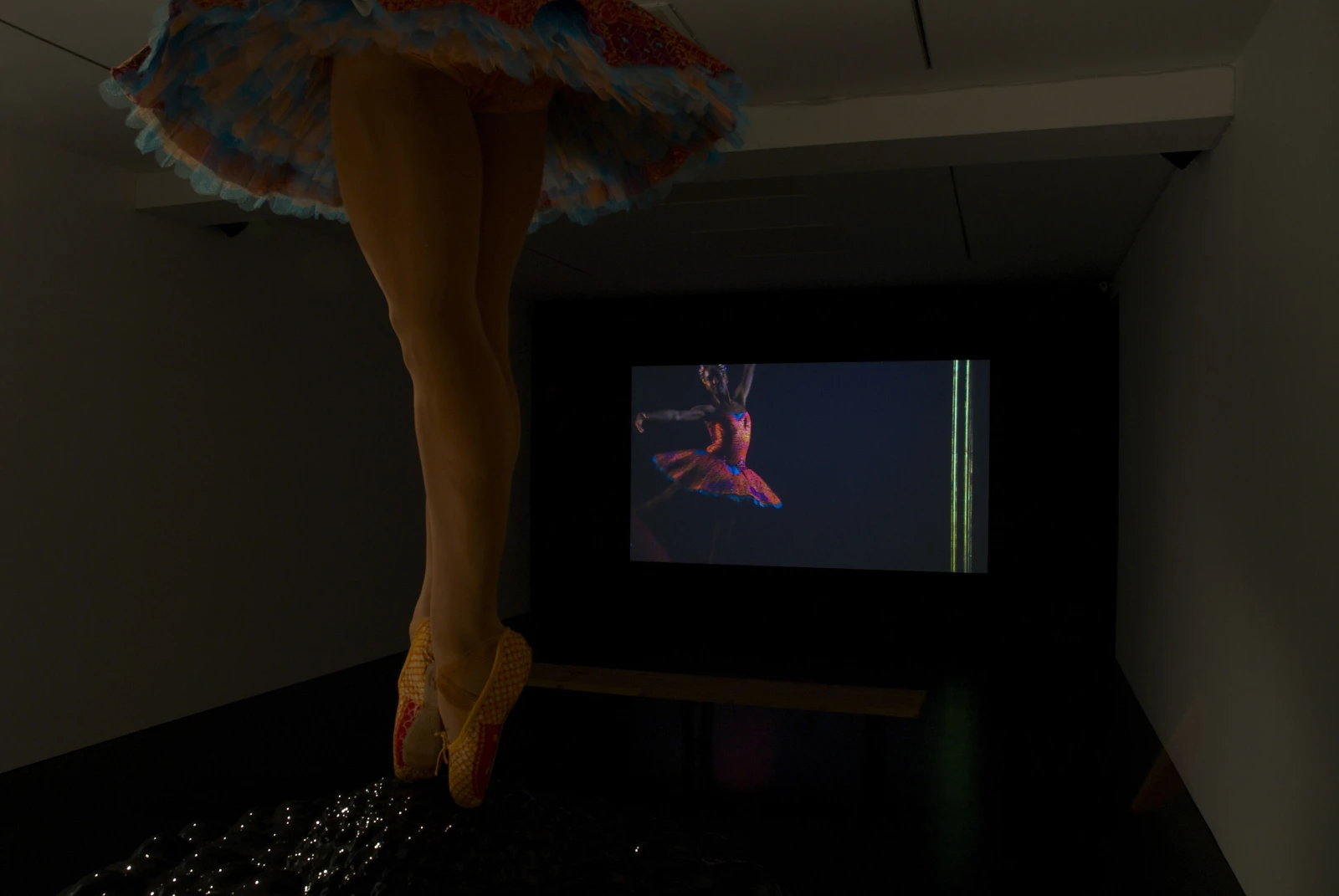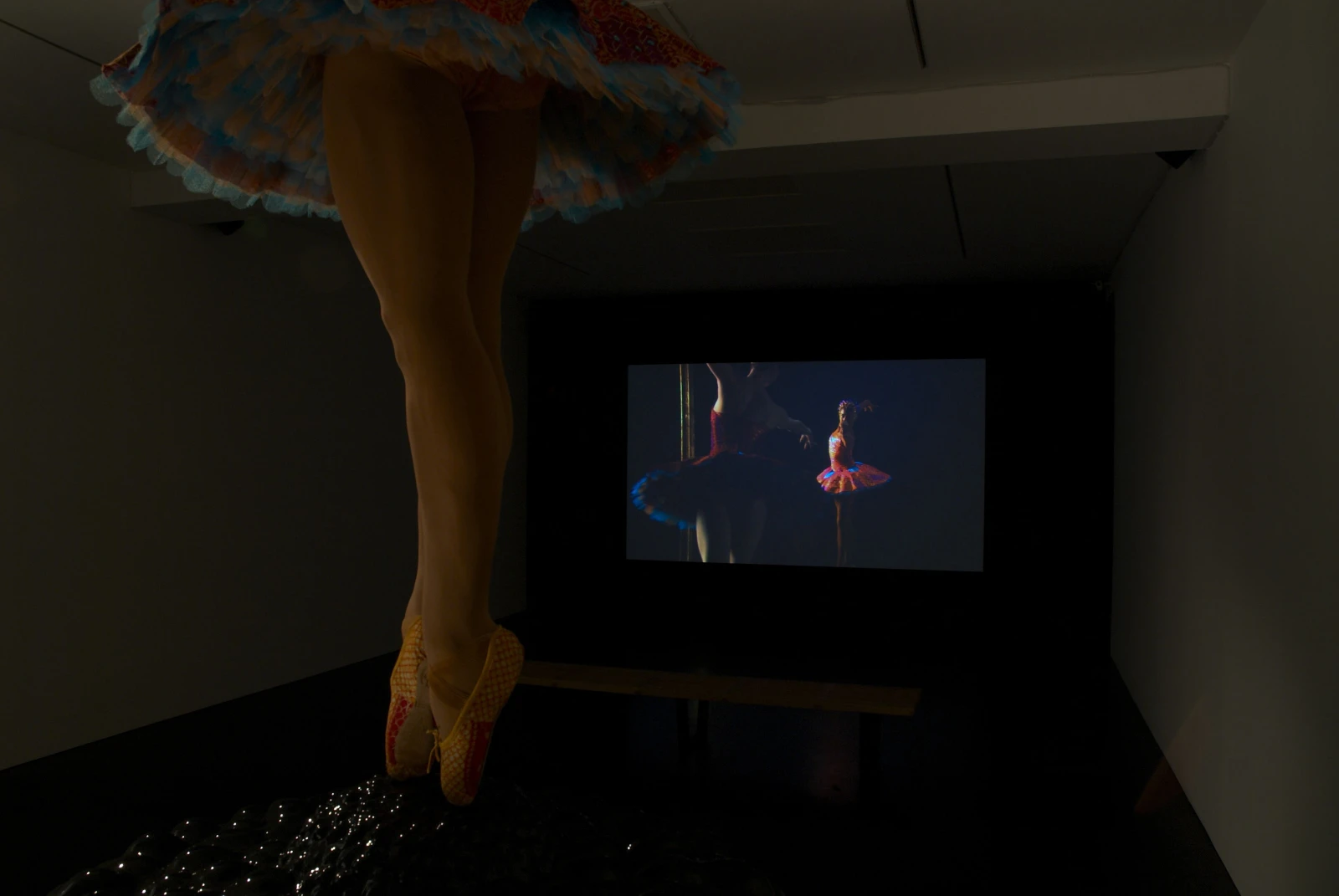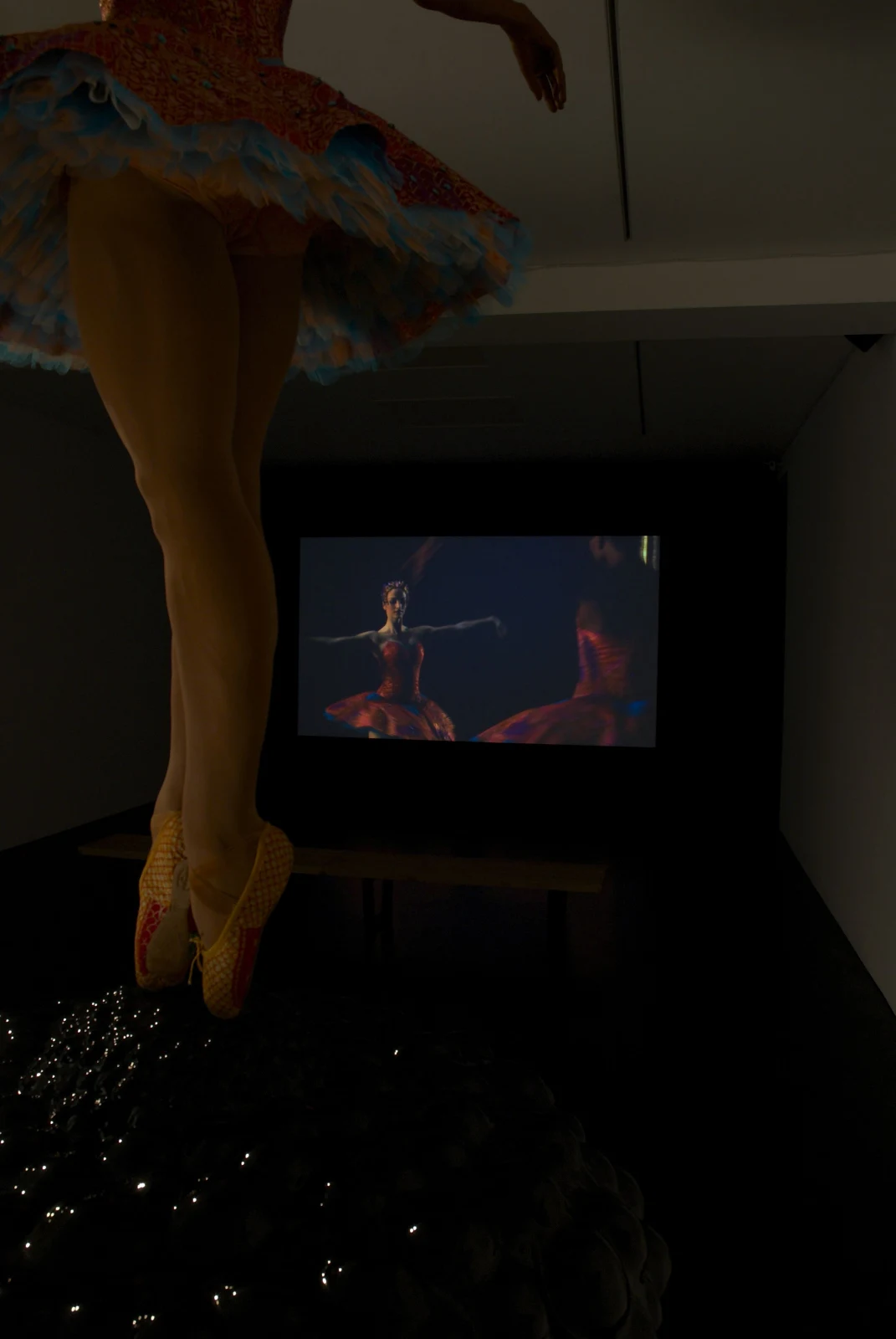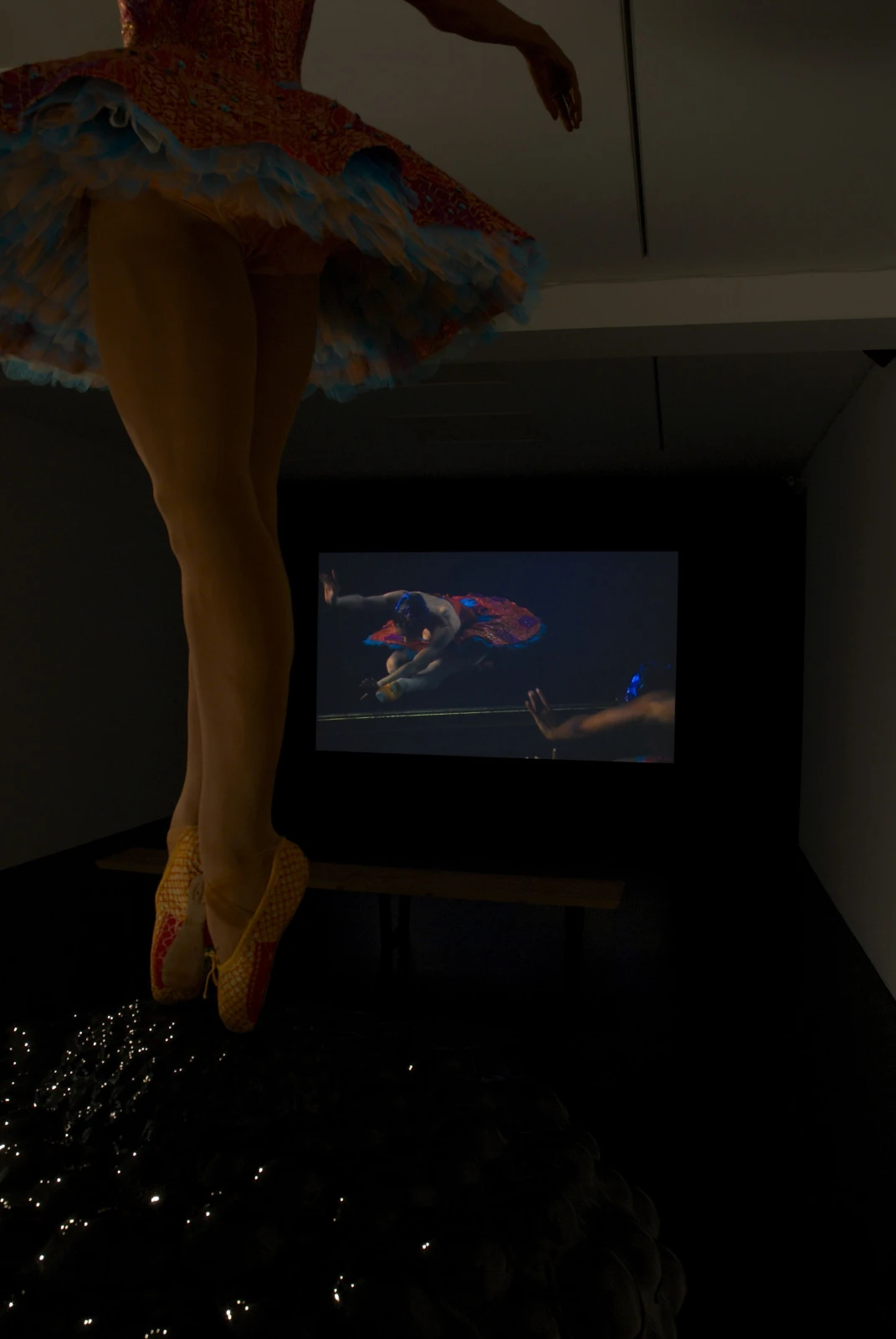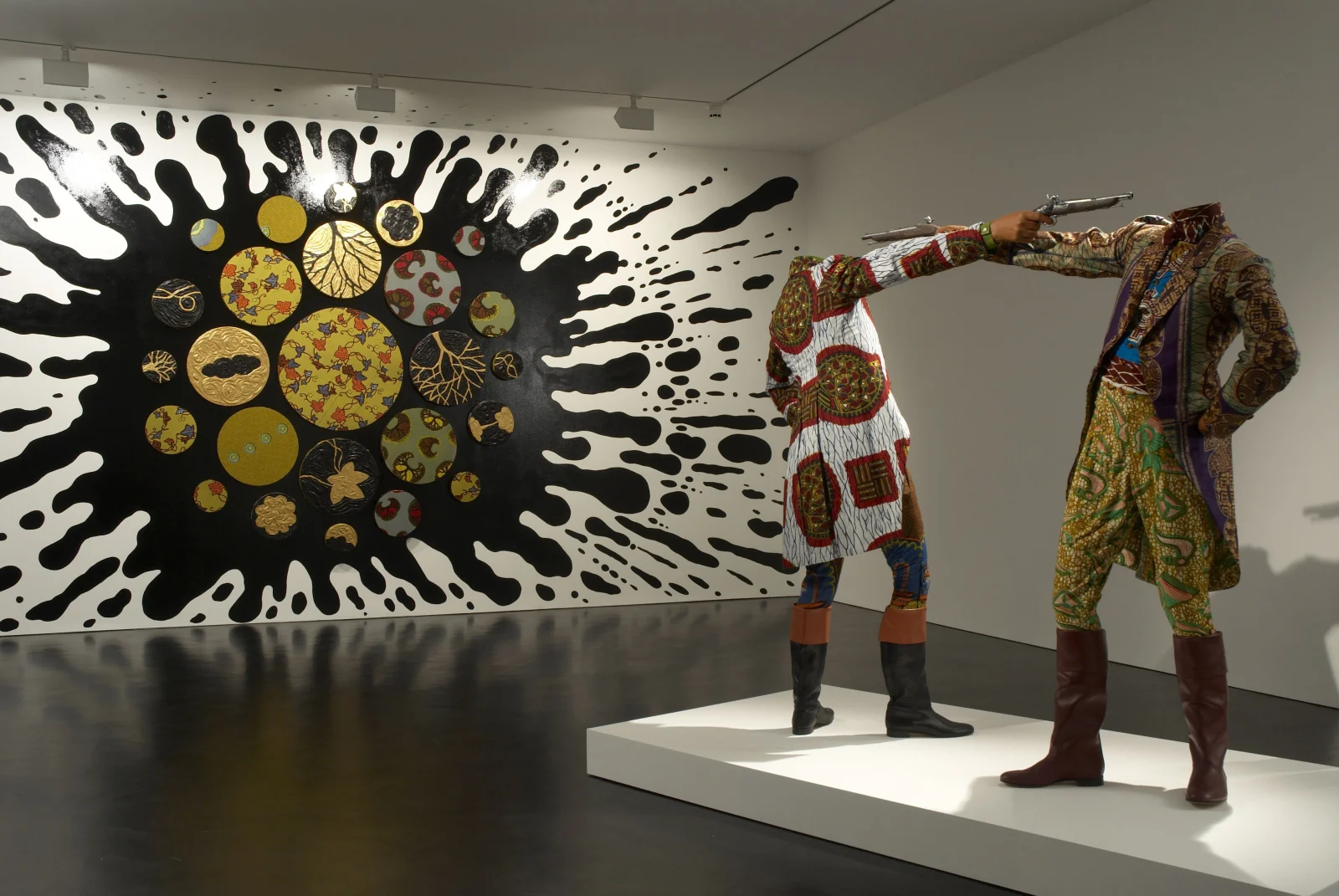
Yinka Shonibare MBE: Flower Time
Overview
Considering the violent clashes of identities and beliefs taking place in the Middle East and beyond, the artist asks “can art evolve absolutely oblivious to our time of extreme trauma?”, or “can dealing with trauma be a valuable solace?”.
Stephen Friedman Gallery is pleased to present Flower Time, an exhibition of new work by British artist Yinka Shonibare, MBE. Flower Time is Shonibare’s first major presentation of work in London in several years. The exhibition includes a new film, sculptural works and a large painting installation. Over the past ten years Shonibare has gained critical acclaim for his work, which mines the rich history of societal and class self-identification expressed through the genre of eighteenth and nineteenth century portraiture.
The artist typically investigates political and social histories, drawing from his own experience and dual upbringing in the UK and Nigeria to create a complex and cosmopolitan response to post-colonial debate. In previous works, the artist has reconfigured iconic imagery from the canon of western art history with both a playful and ironic touch.
Stephen Friedman Gallery is pleased to present Flower Time, an exhibition of new work by British artist Yinka Shonibare, MBE. Flower Time is Shonibare’s first major presentation of work in London in several years. The exhibition includes a new film, sculptural works and a large painting installation.
Over the past ten years Shonibare has gained critical acclaim for his work, which mines the rich history of societal and class self-identification expressed through the genre of eighteenth and nineteenth century portraiture. The artist typically investigates political and social histories, drawing from his own experience and dual upbringing in the UK and Nigeria to create a complex and cosmopolitan response to post-colonial debate. In previous works, the artist has reconfigured iconic imagery from the canon of western art history with both a playful and ironic touch. Working in sculpture, film, photography and painting, the artist is best-known for his tableaux scenes where characters are dressed in spectacular period costumes and props created from his signature material – a type of Indonesian designed fabric, produced in the Netherlands that has become popularly assimilated in West Africa.
The title work of the exhibition, Flower Time, is inspired by a hand-made bouquet of flowers composed of roses, orchids, anemones and ivy fashioned out of the Dutch wax printed fabric. This delicate work is somewhat a momento-mori and establishes the melancholic tone of the exhibition – described by the artist as a response to the current global political climate. Considering the violent clashes of identities and beliefs taking place in the Middle East and beyond, the artist asks “can art evolve absolutely oblivious to our time of extreme trauma?”, or “can dealing with trauma be a valuable solace?”.
Odile and Odette (2005) is a new film made in collaboration with the Royal Opera House. Here, Shonibare re-imagines a classical episode from Tchaikovsky’s Swan Lake, where the lead roles engage in a close dialogue of gestures and movement. Odile and Odette are characters which embody ‘good’ and ‘evil’ and are traditionally danced by a sole performer. The artist transforms this classical part into a complex and subtle interplay between two dancers in which the duality of the characters is played out in racial difference. Mirroring each other’s expression on either side of an ornate Baroque frame, Shonibare suggests that their movement is both estranged and united.
The figure of the dancer is mirrored again in Flower Cloud (2006) – a surreal sculpture in which a life size ballet dancer in full costume balances atop a nuclear mushroom cloud. This apocalyptic vision is a totemic and powerful icon for the exhibition, bringing together Shonibare’s diverse concerns and situating the exhibition as a highly personal protest and a lament for the flower power of a previous era.
Black Gold is an installation composed of a series of round black and gold painted canvasses presented on a viscous black ground, suggesting that these works have emerged from an oil spill. In previous wall painting installations, the artist has engaged with the specific history of abstract painting of the late twentieth century. The title of the work poetically refers to the rich and potent qualities of the surface of these oil paintings and their derivative source that has become such a fundamental and contested resource in recent years. Black Gold also carries an implication about the politics of oil, mineral and metallurgical extraction and refers to the exploitation by British imperialists in Southern Africa up until the collapse of the Apartheid regime.
During the course of the exhibition Shonibare will also be participating in Alien Nation at the ICA, London (17 November 2006 – 14 January 2007). In 2007 the artist will present a major new commission at the South Bank Centre, as the inaugural commission in a series of flag-works shown on a 65ft flagpole on Jubilee Gardens – initiated by Hayward Gallery Director, Ralph Rugoff. This will be followed by an artist’s talk at the Hayward Gallery. Also in 2007, the artist presents newly commissioned work at the V&A for Uncomfortable Truths – the shadow of slave trading on contemporary art and design (20 February – 17 June 2007), an exhibition marking the bicentenary of the outlawing of the British slave trade. In April 2007, Yinka Shonibare will present a major new site-specific work Jardin d’Amour at the Musée du Quai Branly, Paris.
Considering the violent clashes of identities and beliefs taking place in the Middle East and beyond, the artist asks “can art evolve absolutely oblivious to our time of extreme trauma?”, or “can dealing with trauma be a valuable solace?”.
